As the sun stretches its golden rays and the days grow longer, summer becomes the perfect season to dive into the garden and cultivate your vegetable garden. Whether you have a sprawling lawn & garden or a cozy balcony for city gardening, growing your veggies is not only rewarding but also a fantastic way to enjoy fresh, organic produce. In this blog, we’ll explore the best vegetables to grow at home during the summer, along with some gardening tips to ensure a bountiful harvest.
Why Start a Summer Vegetable Garden?
Summer is the ideal time for gardening because the warm temperatures and extended daylight hours create the perfect environment for many vegetables to thrive. Plus, tending to your garden can be a therapeutic escape from the hustle and bustle of daily life. Whether you’re a seasoned gardener or a beginner, growing your food is a fulfilling experience that connects you with nature.
Top Vegetables to Grow in Your Summer Garden
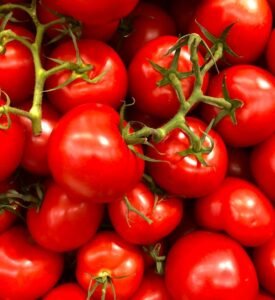
1) Tomatoes
No summer vegetable garden is complete without tomatoes. These sun-loving plants are incredibly versatile and can be grown in pots, raised beds, or directly in the ground. Choose from cherry tomatoes, beefsteak, or heirloom varieties to add color and flavor to your meals. Remember to provide support like stakes or cages to keep the plants upright as they grow.
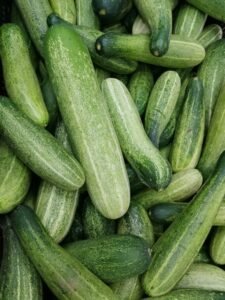
2) Cucumbers
Crisp and refreshing, cucumbers are a summer staple. They grow quickly and thrive in warm weather. If you’re into city gardening, choose bush varieties perfect for containers. Cucumbers need plenty of water, so keep the soil consistently moist for the best results.
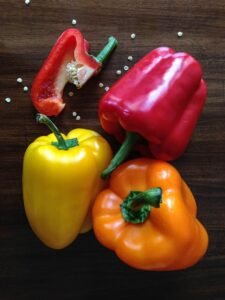
3) Bell Peppers
Bell peppers add a splash of color and a sweet crunch to your dishes. These heat-loving plants are easy to grow and do well in garden beds and pots. For a continuous harvest, pick the peppers when they’re green, or wait until they turn red, yellow, or orange for a sweeter flavor.
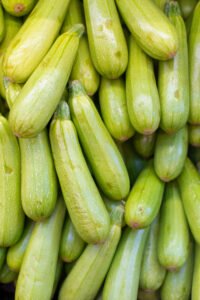
4) Zucchini
Zucchini is a prolific summer squash that grows abundantly in warm weather. One or two plants can produce more than enough for a family. Plant them in well-draining soil and give them plenty of space to spread out. Don’t forget to check for pests like squash bugs, they are common in the lawn & garden.
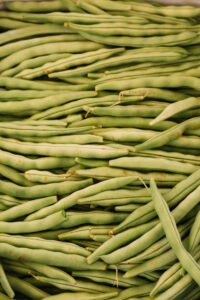
5) Green Beans
Green beans are a low-maintenance crop that thrives in the summer heat. They grow quickly and can be harvested in just a few weeks. Choose between bush beans, which are compact and great for small spaces, or pole beans, which require trellising but produce a higher yield.
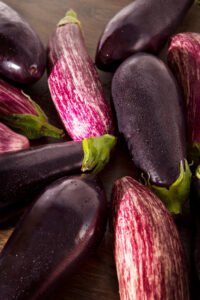
6) Eggplant
Eggplants love the heat and are a great addition to any summer vegetable garden. These glossy, purple beauties grow well in containers or garden beds. Keep the soil moist and provide support for the plants as they grow taller.

7) Lettuce
While lettuce is often associated with cooler weather, certain varieties like loose-leaf and romaine can tolerate summer heat if grown in partial shade. Harvest the outer leaves as needed, and you’ll have a continuous supply of fresh greens for salads.
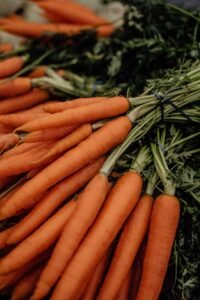
8) Carrots
Carrots are a root vegetable that can be grown throughout the summer. They prefer loose, sandy soil and consistent moisture. For city gardening, choose shorter varieties suitable for containers or raised beds.
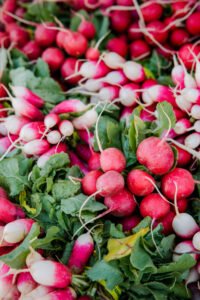
9) Radishes
Radishes are one of the fastest-growing vegetables, making them a fun and rewarding choice for beginners. They’re ready to harvest in as little as three weeks and add a peppery kick to salads and snacks.
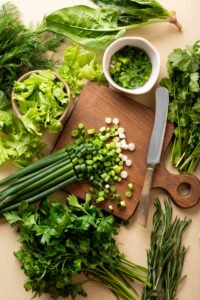
10) Herbs (Basil, Cilantro, and Parsley)
While not technically vegetables, herbs are a must-have in any summer garden. Basil, cilantro, and parsley thrive in warm weather and can be grown alongside your veggies or in pots on a sunny windowsill. They’re perfect for adding fresh flavor to your summer dishes.
Gardening Tips for a Thriving Summer Vegetable Garden
Choose the Right Location
Most summer vegetables need at least 6-8 hours of sunlight daily. Pick a spot in your lawn & garden that gets plenty of sun and has well-draining soil. If you’re into city gardening, utilize balconies, rooftops, or windowsills.
Water Wisely
Summer heat can dry the soil quickly, so consistent watering is key. Water your plants early in the morning or late in the evening to reduce evaporation. Mulching around the plants can also help retain moisture.
Feed Your Plants
Vegetables are heavy feeders, so enrich the soil with compost or organic fertilizer before planting. Regularly feed your plants throughout the growing season to ensure healthy growth and a bountiful harvest.
Practice Indoor Plant Care for Seedlings
If you’re starting your garden from seeds, begin indoors a few weeks before the last frost date. Use seed trays or small pots, and provide adequate light and warmth. Once the seedlings are strong enough, transplant them into your garden.
Combat Pests Naturally
Summer gardens can attract pests like aphids, caterpillars, and beetles. Use natural remedies like neem oil, insecticidal soap, or companion planting to keep pests at bay without harming your plants.
Rotate Crops
If you’ve gardened before, avoid planting the same vegetables in the same spot year after year. Crop rotation helps prevent soil-borne diseases and maintains soil fertility.
Making the Most of Small Spaces: City Gardening Tips
Don’t let limited space deter you from starting a vegetable garden. City gardening is all about creativity and maximizing what you have. Here are some tips for growing veggies in small spaces:
- Use vertical gardening techniques like trellises, hanging baskets, or wall planters to save space.
- Choose compact or dwarf varieties of vegetables that are bred for container gardening.
- Utilize windowsills, balconies, or even community gardens to grow your food.
- Combine vegetables with ornamental plants to create a functional and beautiful garden.
The Joy of Harvesting Your Vegetables
There’s nothing quite like picking fresh vegetables from your garden. Whether it’s a juicy tomato, a crisp cucumber, or a handful of fragrant herbs, homegrown produce tastes better and is free from harmful chemicals. Plus, gardening is a great way to reduce your carbon footprint and live sustainably.
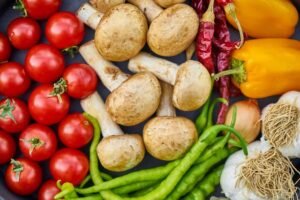
Final Thoughts
Starting a summer vegetable garden is a delightful way to connect with nature, enjoy fresh produce, and add a touch of green to your life. Whether you have a sprawling lawn & garden or a tiny balcony for city gardening, there’s a vegetable perfect for your space. With a little effort and some gardening tips, you’ll be well on your way to a thriving garden that brings joy and nourishment all summer long. So, roll up your sleeves, grab your gardening tools, and step into the garden—it’s time to grow your summer bounty!
